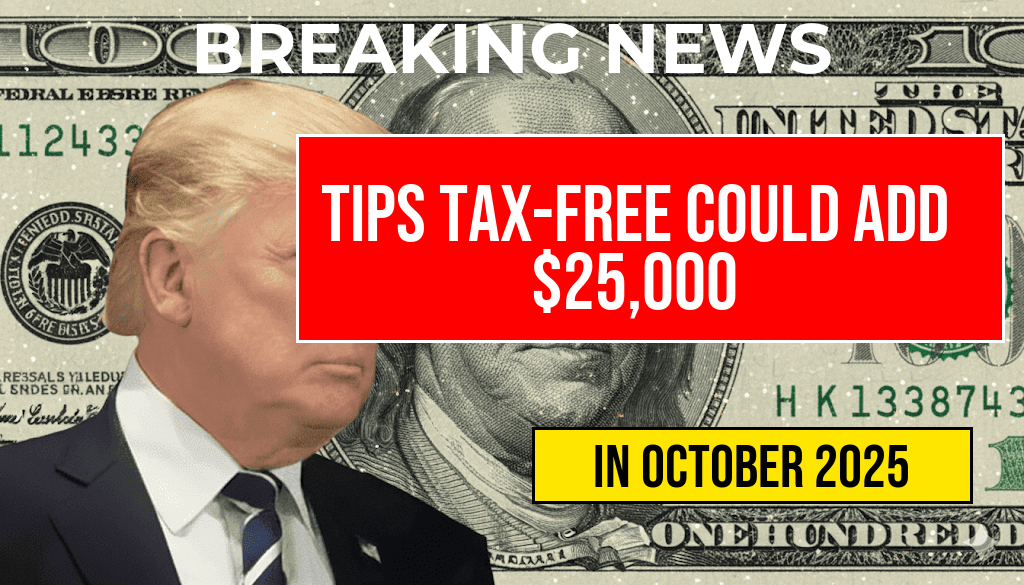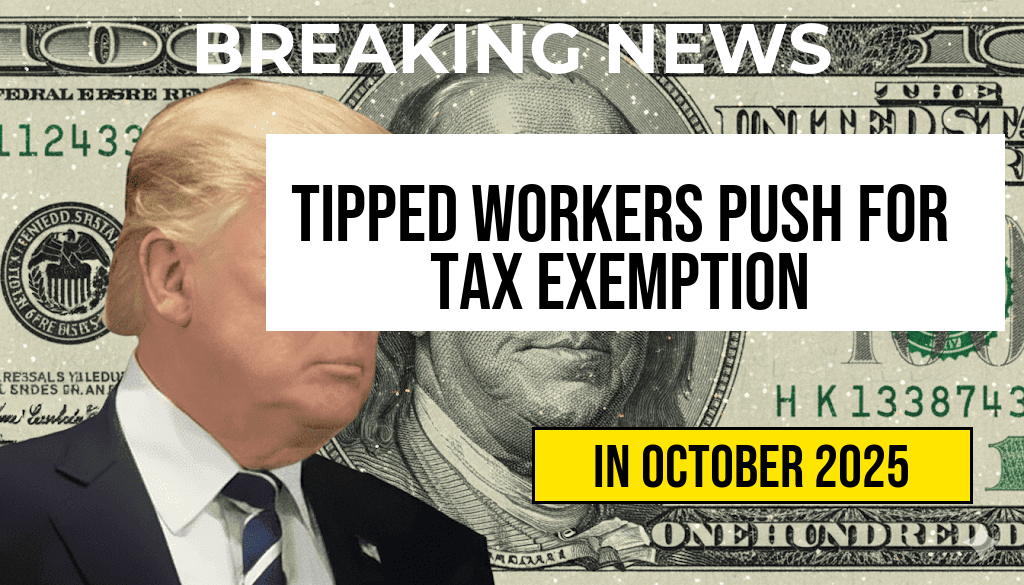Recent discussions surrounding the taxation of gratuities in the United States have sparked interest among service workers and employers alike. A proposed change, which suggests that tips should not be subject to income tax, could result in an average income boost of approximately $25,000 for workers in the hospitality and service industries. However, while this development offers significant economic relief, it is essential to clarify that payroll taxes will still apply to these earnings. As the debate heats up, understanding the implications of these changes is crucial for those directly affected by them.
Understanding the Potential Impact of No Tax on Tips
The service industry, particularly sectors like restaurants, bars, and salons, relies heavily on tips as a substantial portion of employees’ incomes. According to the Forbes Finance Council, an estimated 60% of service employees depend on tips to meet their financial needs. By eliminating income tax on these gratuities, workers could see a significant upsurge in their take-home pay, potentially increasing their annual earnings by up to $25,000.
Current Tax Structure for Tips
Under the current federal tax system, tips are considered income and are subject to taxation. This includes both federal income tax and state taxes, depending on the jurisdiction. Furthermore, employers are required to withhold payroll taxes on tip income, which includes Social Security and Medicare taxes. The proposed change would primarily affect the income tax aspect, allowing service workers to retain more of their earnings.
Payroll Taxes Remain in Effect
While the elimination of income tax on tips could lead to substantial financial benefits, it is important to recognize that payroll taxes will still be applicable. This means that even though workers might see an increase in their net pay due to the absence of income tax, they will still be contributing to Social Security and Medicare through payroll deductions. Employees should be aware that this could reduce the total amount they take home, albeit by a smaller margin than under the current tax structure.
Potential Benefits for Workers
- Increased Take-Home Pay: Service workers may experience a significant increase in their annual income, allowing for improved financial stability.
- Encouragement to Report Tips: The change may incentivize workers to report their tips accurately, which can lead to better benefits and retirement security.
- Positive Impact on Local Economies: With more disposable income, workers are likely to spend more, stimulating local businesses and economies.
Challenges and Considerations
While the idea of no tax on tips presents clear advantages, there are challenges to consider. For one, the loss of tax revenue could impact federal and state funding for essential services. Critics argue that the government could face budgetary constraints, especially if a large percentage of service workers are exempt from income tax. Additionally, some fear that a shift in tax structure could lead to increased scrutiny of tip reporting practices, with employers closely monitoring compliance.
Debate Among Lawmakers
The proposal has ignited discussions among lawmakers at both state and federal levels. Proponents argue that this change would help level the playing field for low-wage workers who depend on tips, while opponents raise concerns about potential revenue losses. As discussions continue, the implications for service workers, employers, and taxpayers will need to be carefully weighed.
Conclusion: A Change on the Horizon?
As the conversation regarding the taxation of tips evolves, employees in the service industry are hopeful for changes that could significantly enhance their financial situations. The proposed elimination of income tax on tips offers a promising outlook, but the reality of payroll taxes still looms large. Stakeholders must remain engaged in the legislative process to ensure that the final outcome serves the best interests of all involved. For more information on this topic, you can visit Wikipedia on Taxation in the United States or read more on the IRS website.
Frequently Asked Questions
What does “No Tax on Tips” mean for workers?
The phrase “No Tax on Tips” refers to the potential for service workers to receive their tips without the burden of income tax, which could significantly boost income for those in the service industry.
How much can workers potentially earn from tips without tax?
$25,000 annually if they are able to take advantage of the No Tax on Tips policy, depending on their tips and the nature of their employment.
Do payroll taxes still apply to tips?
Yes, even though there may be No Tax on Tips, payroll taxes such as Social Security and Medicare taxes still apply to tips received by workers.
Who benefits the most from the No Tax on Tips policy?
The policy primarily benefits individuals in the service industry such as waitstaff, bartenders, and taxi drivers, whose earnings are heavily reliant on tips.
Are there any drawbacks to the No Tax on Tips policy?
While the No Tax on Tips policy can increase take-home pay, workers must still navigate payroll taxes, which can complicate their overall understanding of their net income and tax obligations.






